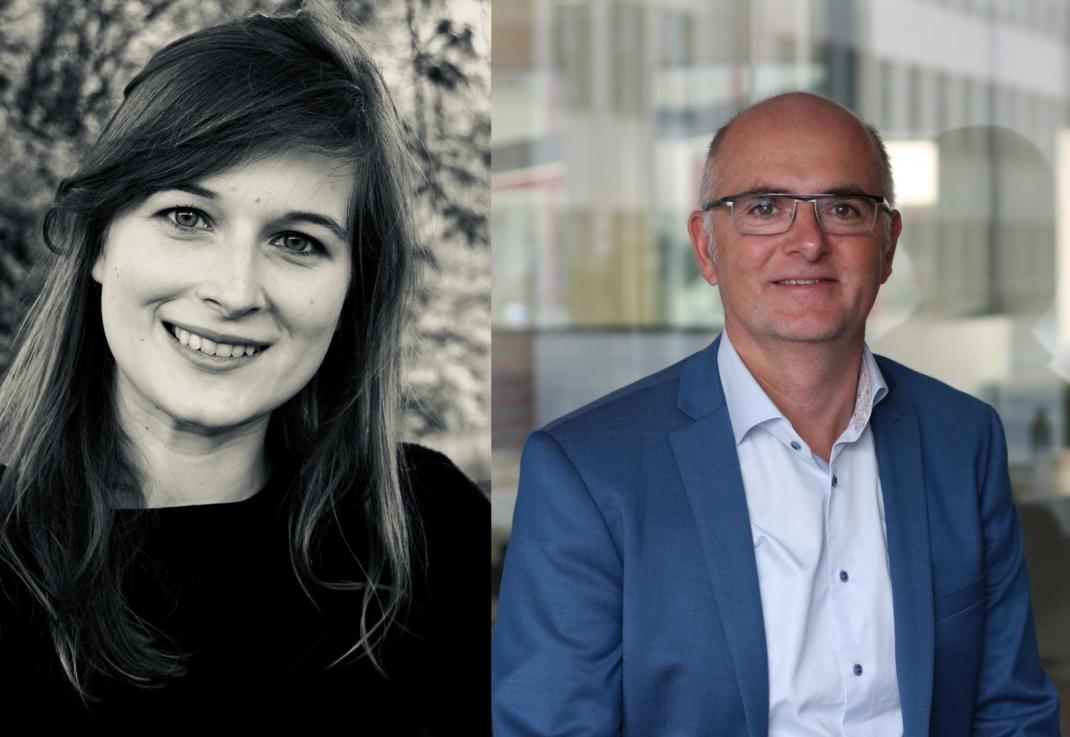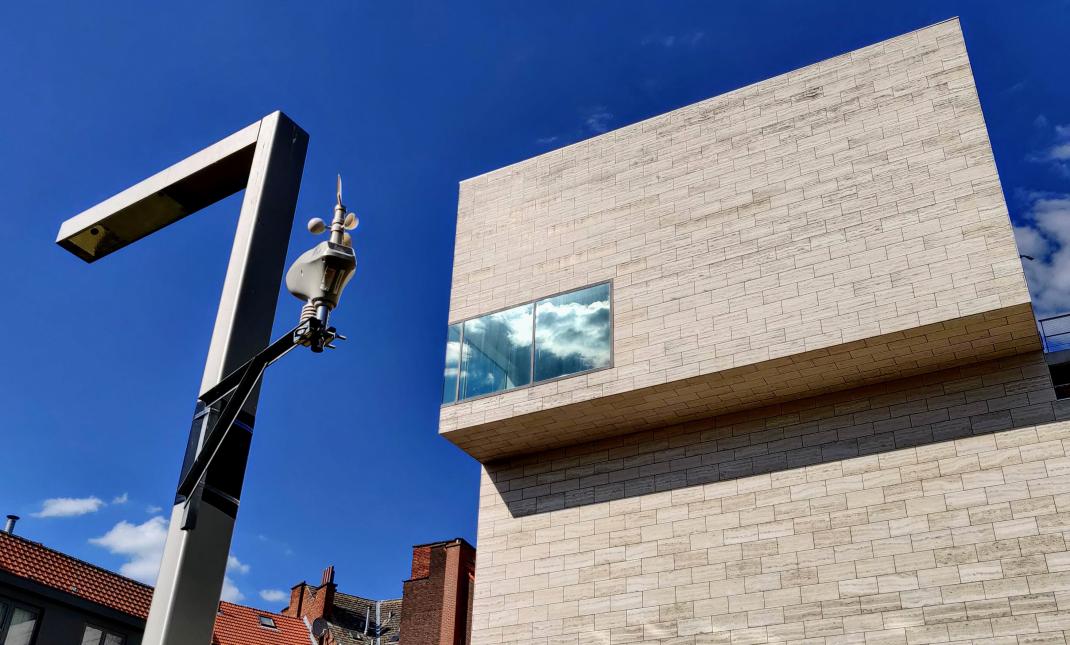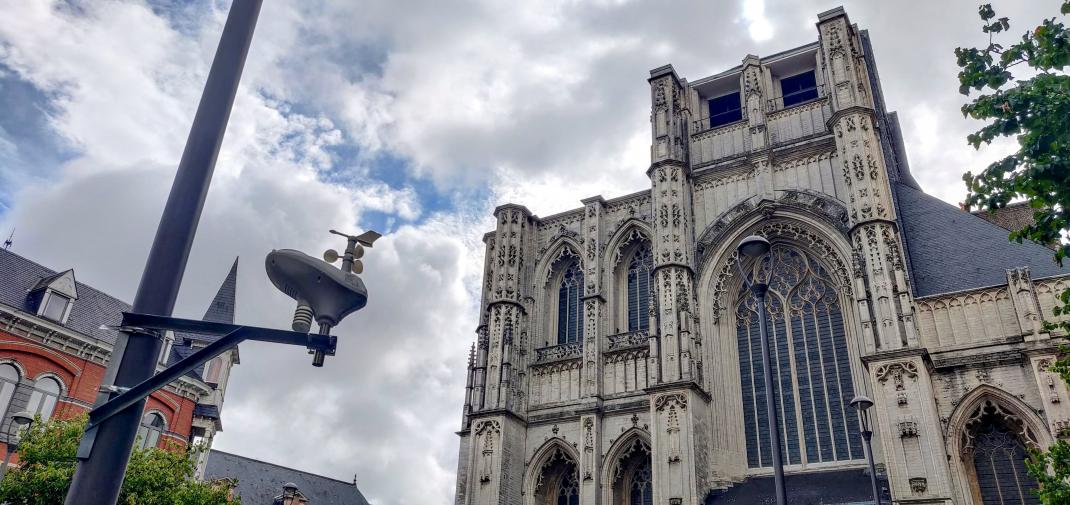Roadmap citizen science in cities and municipalities: this is how to get started!
Imagine you’re the mobility or environment department head in a town. One day, you receive a question in your mailbox from a few concerned citizens. They want to work together on a citizen science project. The inhabitants want to tackle the problem of a busy back road or put a polluted stream on the agenda. Do you react laconically and let the citizens be, or do you realise that this is a chance to tackle a problem together? We’re hoping you would choose the latter, especially since in the future you won’t have to deal with it alone. Indeed, from April 23rd you can easily open the new Roadmap Citizen Science to look for a suitable solution together with citizens.
Professional approach
Citizen science can be an important added value for policy and governance in cities and municipalities. However, there are currently a lot of questions that local governments have about the possibilities and difficulties of citizen science. What is citizen science exactly, how do you set up a project, is there a link with ‘smart cities’, how do you set up a purposeful collaboration with local initiatives? These are just a selection of the relevant questions.
Agentschap Binnenlands Bestuur (the Flemish Agency for Domestic Affairs) felt the need to support towns and municipalities in citizen science. To do so, the Agency engaged three professional actors in the field to set up a citizen science roadmap for local governments. Imec-SMIT-VUB was coordinator of the project and gave input regarding participation, communication, and engagement, Scivil made sure the citizen science community was involved, and IDEA GROUP made the connection with the practicalities of local governments. The authors did not take their task lightly, they put together their expertise, organised workshops with local governments and citizen science initiatives and collected experiences from the field using in-depth interviews. Carina Veeckman, Senior Researcher (imec-SMIT, VUB) and Bart Van Herck, Senior Expert (IDEA consult nv), look back on the successful trajectory.
You carried out a survey with both local governments as well as a number of initiators of citizen science projects. What have been the main concerns and needs that came from that survey?
“The knowledge of and experience with citizen science is still limited for local governments in Flanders. There are some leading cities, like Leuven, Mechelen, Ghent or Roeselare, but there is currently no local government that has a global policy or coherent vision regarding citizen science. For example, the local governments don’t keep a systematic overview of which projects are currently happening on their territory. Citizen science is now mostly a job for officials that are active in domains such as the environment or mobility, or those that follow up themes such as ‘smart city’ or participation.”
Expectation management
What is the unique added value of citizen science for local governments and inhabitants of cities and municipalities?
“From our survey it appears that there are four main advantages: the availability of more data and insights for policy making, increasing the citizen involvement and community building, expanding local government’s network, and garnering media attention. Collecting objective data is a very visible and important advantage. “To measure is to know” is a valuable slogan. If you make citizens the owner of the measuring process, support will be created for policy decisions based on the data. The involvement of citizens will make sure that they gain insight in the complexity of certain situations and problems. Additionally, they can come up with their own topics that are very prominent in their lives. “Measuring together” this way achieves equality and it builds the community.
Finally, citizen science is fun! A lot of citizens enjoy contributing, learning, and discovering.”
In the new Roadmap Citizen Science for local governments, you provide several professional starting points. Should we consider those recommendations as practical tips, or more as guidelines on the policy level?
“These starting points are both situated on policy level as well as project level. We make a ten-point plan for local governments. This plan gives them the guidance to create a vision and policy regarding citizen science internally.
In that plan, we also pay attention to expectation management. It is important that citizens, as well as all other stakeholders, know beforehand what the aim of the study is, what is expected from them, and what will happen with the data and results.
On the project level, we created a step-by-step plan how to initiate a project yourself or find where to start up a collaboration. We mapped chronologically every action and every process, from beginning to end of the project. This way, as policy makers you can anticipate on the opportunities and threats, since we also identify points of attention, failure and risk factors."
“We hope that through the new roadmap there will be more knowledge of citizen science and that local governments will start with experiments, small-scale initiatives, or collaborations with bottom-up initiatives. And that the collected data will also be useful for policy making!”
Participation and recognition
Are the pitfalls that you could identify mostly related to the domains of collaboration and communication, just like in other citizen science projects?
“We indeed detected several working points in those domains. By listing these, we made sure all partners gained grip on the process.
One of the factors of failure is the concern about continuity. At the end of a citizen science project, it’s important for policy makers to show that the results of the research will truly be used. Constructive thinking beforehand about the goal of the project and developing an expectation management plan helps with this. Another point of attention is communication with the participants of the project. If you spend insufficient attention to the needs of the participants as a government or initiator of a project, your project will have a chance of failing. A big risk arises when there is mistrust or disagreement between partners or stakeholders at the start of a project. Keeping the citizen scientists happy and engaged is also really important for the success of the project. This means that you must pique citizen’s interest, build a sense of community, listen to, recognise, and act on their needs and questions.
Besides, this is not only needed for ‘the usual suspects’, the participants who are already interested in the project, but also for target groups that are less accessible.”
As a government, how do you create a clear data policy?
“Data are an extra point of attention. Data require a transparent, accessible, and clear communication towards citizens. Data gathering platforms where citizen scientists work and stay in touch should be user friendly. When it comes to collected data, it can go wrong when the data quality is not sufficient, when citizens didn’t perform the collect measurements or if there is no agreement on the installation and maintenance of the measuring equipment. All partners and stakeholders have to be on the same page and work towards the same, neutral goal: objectively measuring together and learning from it, that is of crucial importance."
Neutral and supported
As a town and municipality or as a citizen, is it better to join a Flemish or even international citizen science project, or does the power of citizen science lie in the fact that everyone can launch a project at the corner of their street, so to speak?
“Both are valuable, joining a bigger Flemish or international initiative, as well as working together with bottom-up citizen science initiatives. For smaller municipalities, which don’t always have the capacity and resources, it can be interesting to join forces with neighbouring municipalities. The Flemish Government, moreover, can function as a facilitator and supporter of local governments. Some municipalities have already ventured onto the international level, they were involved in the European H2020-projects and Interreg-projects. In essence, it is a matter of open attitude and respect from governments towards citizens and vice-versa.”
What is the role of scientists in the overall picture? How can they safeguard professionalism in these projects?
“Scientists can help local governments with establishing a data protocol or research method, analysing, and interpreting the data. Those tasks are preferably a shared responsibility between local governments and experts. This way, data analysis can be executed in a neutral, mutually supported way. We also see scientific partners take charge of the participatory trajectory between policy makers, citizens and other stakeholders, such as LUCA School of Arts in the ‘Stiemerlab’ project (Genk).”
How do you see the future of citizen science on the level of cities and municipalities?
“Bigger cities can definitely take up a leading role, even though they are themselves still exploring the field. We hope to spread more knowledge about citizen science through the new roadmap.We hope to see local governments starting to experiment in small-scale initiatives or collaborations with bottom-up citizen science projects. Mostly, we hope that the collected data will find its use in policy making. A policy driven by data and citizen science, that would be a great vision for the future!"

Carina Veeckman and Bart Van Herck

Leuven neemt deel aan citizen-scienceprojecten. ©Maarten Reyniers

Leuven neemt deel aan citizen-scienceprojecten. ©Maarten Reyniers

Leuven neemt deel aan citizen-scienceprojecten. ©Maarten Reyniers
Interview en tekst: Hilde Devoghel (Tales and Talks)